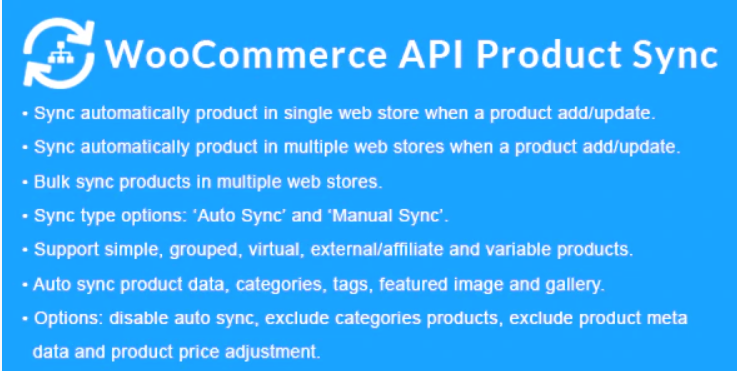Running an online WooCommerce store is always challenging. In the competitive market nowadays, it’s not simply the matter of uploading products online and awaiting orders passively. To make your store profitable, you should handle a ton of tasks at the same time. For example, admin work, marketing, customer support, reporting, decision making and strategizing, order and user management, and many more.
Running one shop has already driven you crazy that way, how about handling multiple ones at a time? Will the challenge multiply?
Not really. In fact, most entrepreneurs generate different sources of income by owning multiple WooCommerce stores. So, how can they survive with the hassle of management tasks? The answer would be they are backed up by the right tools and tips.
In today’s post, thereby, we will walk you through a few tips to help you manage your multiple WooCommerce stores, including using plugins.
Best Plugins to Manage Multiple WooCommerce Stores
As with everything in WordPress, whenever you come across an issue, plenty of solutions are at your hand to support you in making it out. As a matter of fact, there are several plugins that help you solve your concerns.
Without further ado, let’s get started with common cases and recommended plugins to deal with them.
Syncing Inventory across WooCommerce Stores
If you intend to sell the same type of product through different stores, make sure that the inventory is up to date to avoid the oversell issue.
Since handling this case manually isn’t a cakewalk, in this article, we’d like to introduce 3 plugins from which you can choose to ease your work.
#1 WooCommerce API Product Sync with Multiple WooCommerce Stores

WooCommerce API Product Sync with Multiple WooCommerce Stores enables you to automatically sync products from one WooCommerce store to the other stores. You can choose to sync product data including general, inventory, shipping, linked products, attributes, variations, and advanced.
Also, with this plugin, you can sync bulk products in multiple web stores. It is the perfect solution for those who are running multiple WooCommerce stores.
Moreover, WooCommerce API Product Sync with Multiple WooCommerce Stores also offers you many helpful features. For example:
- Sync automatically product data (general, inventory, shipping, linked products, attributes, variations, and advanced)
- Stock sync option: Sync automatically stock (inventory) in destination web stores when orders are placed on a source web store.
- Sync on product delete option: Automatically trash or delete product in destination web stores when trash or delete product on the source web store
Pricing: from $30
#2 WooCommerce Stock Synchronization
This plugin offers only one feature of supporting you in keeping the stock quality of products in sync across multiple WooCommerce stores. In fact, when the inventory quality of a product changes, the plugin will adjust the inventory quality of all connected stores accordingly.
With WooCommerce Stock Synchronization, you can sync your stores with WooCommerce running on any of your domains.
Pricing: from $119
#3 Woo MultiStore

The last plugin that shouldn’t be missed out on is Woo MultiStore. With this plugin, you have the option to synchronize the stock quality of the same products across all your stores. Besides, you can also adjust inventory numbers on different sites.
What’s more, Woo MultiStore plugin also saves you a lot of time and eliminates human error with its provided features. For example, publishing and managing products, managing orders, and exporting orders.
Pricing: from $199
Keep One Shopping Cart for Multiple Stores
In case you intend to provide your customer with a seamless shopping experience across your stores, the WooCommerce Global Cart plugin is the ticket.
The WordPress WooCommerce Global Cart plugin enables you to create a single shopping cart across all stores which indeed saves your customers a lot of time.
The cart is maintained over all your stores. It means that customers can shop in your multiple stores without losing the products he has added to cart in the previous stores.
Additionally, with WooCommerce Global Cart, you can determine the checkout process for your multiple stores. It could be at every shop which includes a product in the cart, at a specified shop, or anywhere in the network.
Pricing: from $120
Duplicating Products across Multiple WooCommerce Stores
Let’s say you’re successful with your very first WooCommerce store. At this point, you want to expand your business with multiple stores. Now, cloning a new site from the existing one seems to be the best method to save your time.
However, in this way, your store will be duplicated, but not products. It’s when the WooCommerce Multisite Duplicate/Delete plugin comes in handy. Its built-in function assists you in copying or deleting products within your multisite environment with ease.
WooCommerce Multisite Duplicate plugin allows you to duplicate your products inside your WordPress Multisite to one or to all sites. That’s not all, this plugin also enables you to specify what you want to copy and much more!
Pricing: from $24.00
Tips to Run Your Multiple WooCommerce Stores Efficiently
We’ve just gone through some plugins that authorize you to handle common problems when running multiple WooCommerce stores. In the next section, let’s discover some handy tips to run multiple stores more efficiently.
#1 Find out Specific Search Engine Strategies
If you’re selling the same products through multiple WooCommerce stores, it’s crucial for you to know how to make the most of search engines.
Actually, you’ll have more opportunities than anyone else to get your products rank on top of searching results as long as you have a good strategy.
It’s not complicated at all, so don’t worry. All you need to do is to find intense keywords that your potential customers are searching for. Then, including them in your posts/pages wisely. By that way, your product sites will get ranked at the top of search results.
However, please make sure that you are building multiple stores with different keywords so that you can avoid competing among your own ones.
#2 Test Multiple Conversation Strategies
Running multiple WooCommerce stores gives you a chance to try on different conversation strategies.
Through the trial period, if one performs better than the others, you can try it out on others sites too.
Having said that, in case your sites are targeting different customers with different demographics, remember to do more research to make sure that this customer segment will adopt the new conversation method.
#3 Unified Inventory and Order Management Processes
Even though you have a set of different styles for your WooCommerce stores in the front-end, it’s highly recommended that you keep the same management process for all.
As such, your stores should look the same in the back end. As the master of fact, you should keep your shipping, payment options, customer support, etc., the same on different sites. Let’s try and see how it helps you manage everything better!
Wrapping Up
Managing multiple WooCommerce stores turns out to be a simple affair with the help of plenty of plugins.
Among several plugins that help you automatically sync inventory, WooCommerce API Product Sync with Multiple WooCommerce Stores, WooCommerce Stock Synchronization, and Woo MultiStore are highly recommended plugins that you can choose from.
If you intend to duplicate products across multiple WooCommerce stores, WooCommerce Multisite Duplicate/Delete plugin offers you features to achieve just that. WooCommerce Global Cart plugin, meanwhile, is the best choice if you want to unified carts across multiple stores.
How many WooCommerce stores are you running? Let us know which issues you’re facing and the solutions to overcome them in the comments box below.
